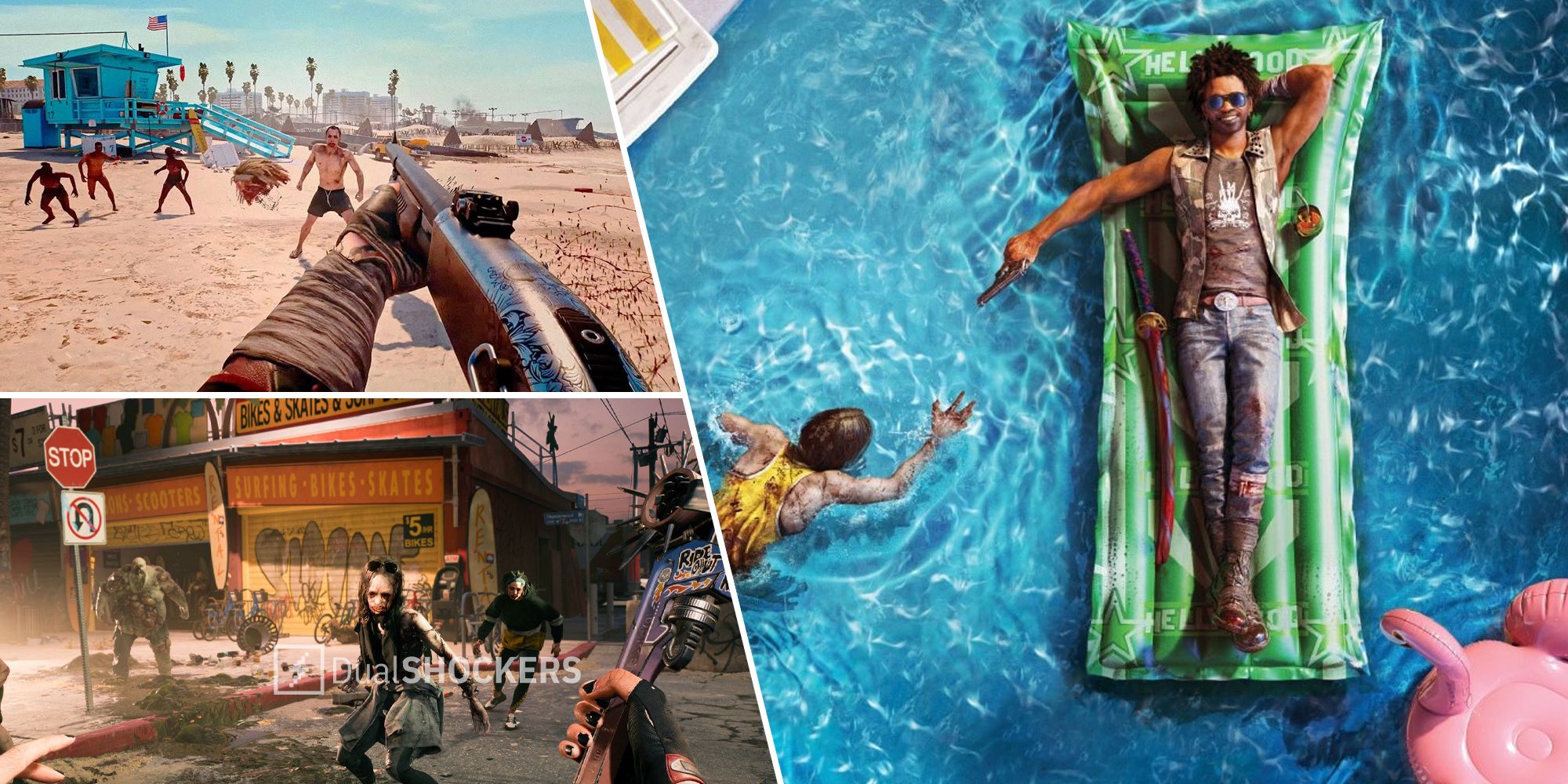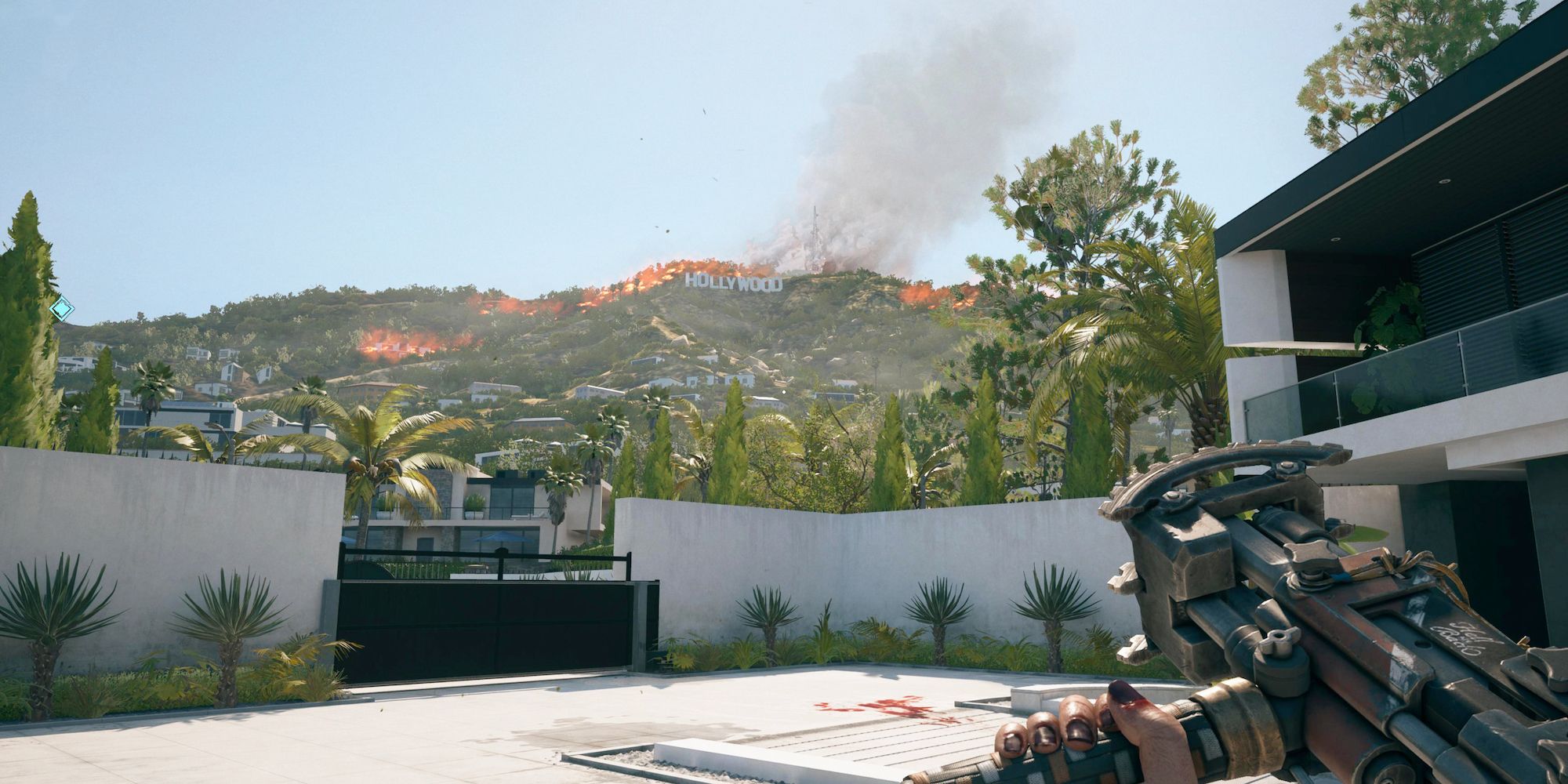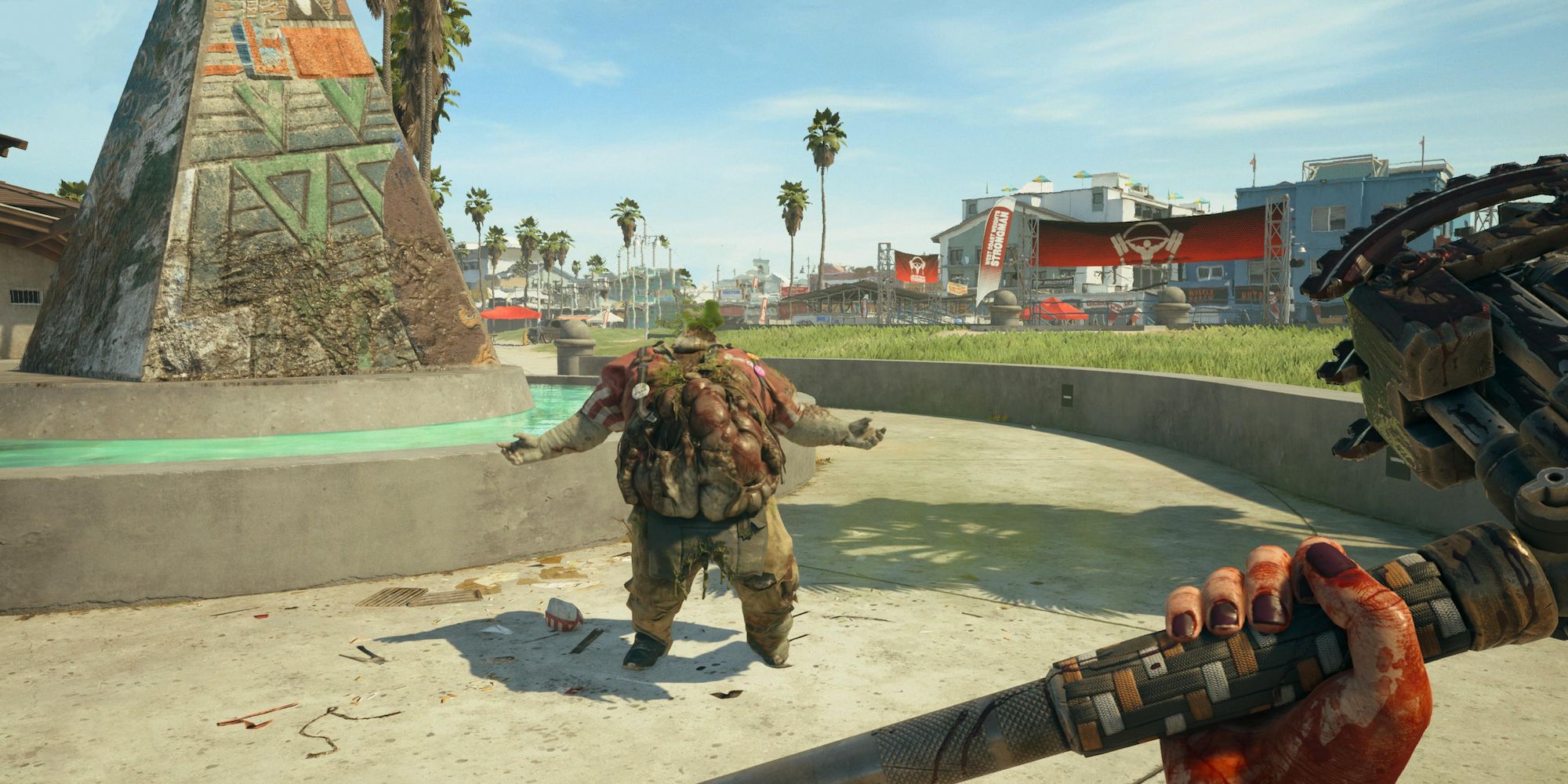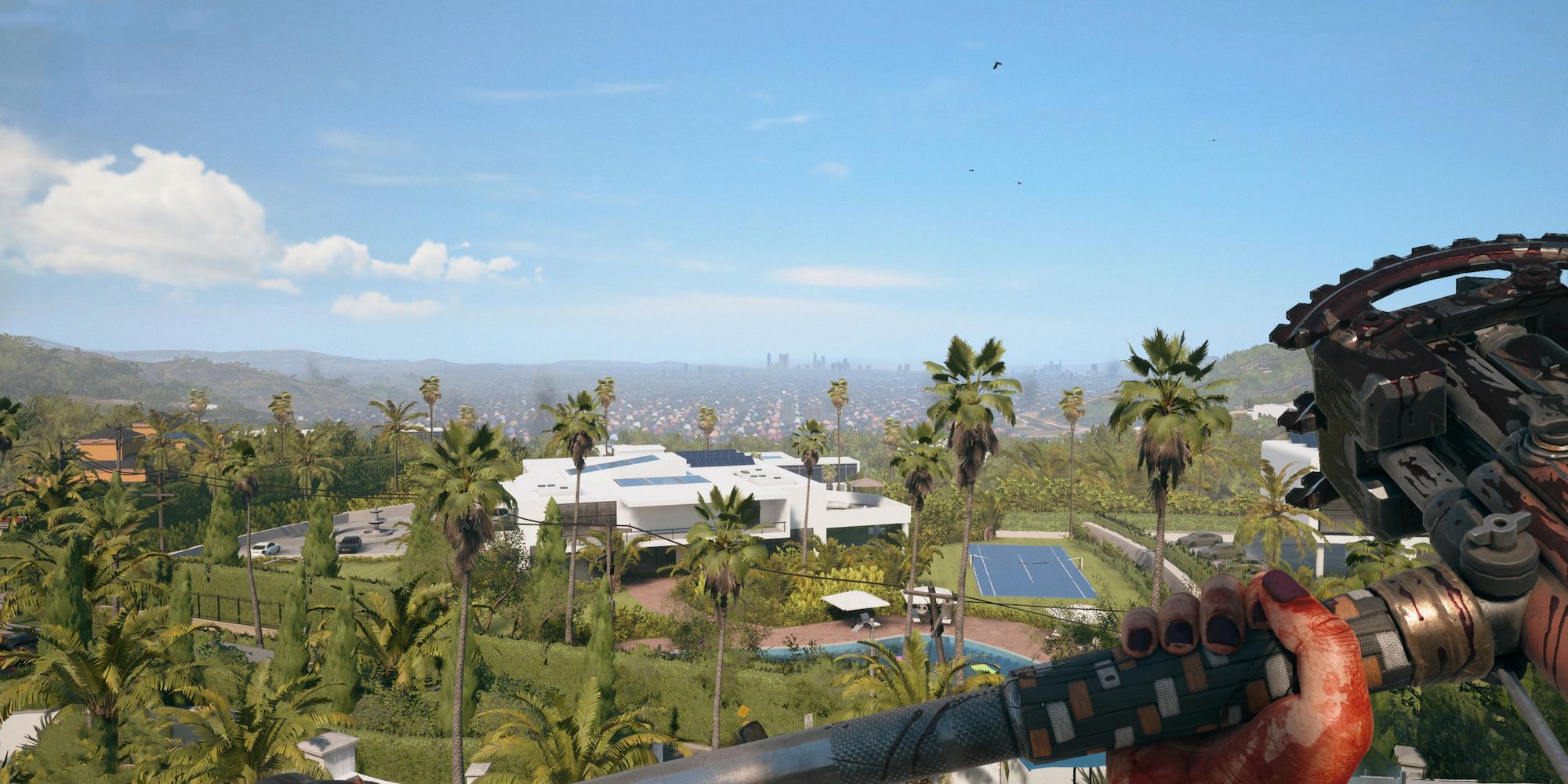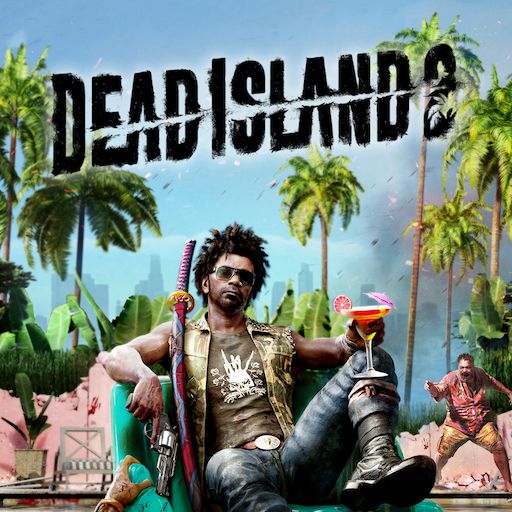
Dead Island 2
Reviewed on PlayStation 5
Dead Island 2 is a worthy successor to the zombie-slaying games that came before it and breathes new life into the franchise long-thought dead. DualShockers was provided with a copy of the game for review purposes.
- Franchise
- Dead Island
- Platform(s)
- PS4 , PS5 , Xbox One , Xbox Series X , Xbox Series S , PC
- Released
- April 21, 2023
- Developer(s)
- Dambuster Studios
- Publisher(s)
- Deep Silver
- Genre(s)
- Action RPG
- Beautifully detailed world
- Expansive combat mechanics
- Memorable characters
- Builds on the world's lore in interesting ways
- Takes a while to get going
- Story leaves a bit to be desired
It has finally arrived! After years of uncertainty and a tumultuous (to say the least) development cycle, Dead Island 2 has finally made it into the hands of gamers. With Dead Island fans anticipating a follow-up to Dead Island: Riptide for just shy of 10 years, Dambuster Studios had big shoes to fill and high expectations to meet. With the final product in hand, I can say that it was well worth the wait.
I had a lot of apprehension going into the game and was worried that the developers had bitten off more than they could chew, pun intended. It started out a bit rough for me, with dialogue that seemed a little weak and cheesy alongside an intro cutscene that didn't do much to help me get invested in the world or characters I was about to meet. My worries quickly subsided, however, when I got the hang of the game's surprisingly complex combat mechanics and understood a bit more about the inevitable end-of-the-world scenario that Dead Island fans will be all too familiar with.
The zombie outbreak has arrived in the mainland United States and is no longer confined to the island nations of Banoi and Palanai. While this is horrible news for the people of Los Angeles — not to mention the world at large — the player quickly discovers their immunity to the virus that turns the average victim into a ravenous monster. There is a lot of overlap between Dead Island 2's premise and that of its predecessors, but it's not long before the game takes on dramatic turns both in its narrative and setting.
Dead Island 2 is definitely a long-haul game. That isn't to say that it drags on for far too long or that there is too much to do, as the opposite is actually quite true. But it took a while before I found myself enveloped in the world. It isn't very welcoming to newcomers, and those that don't know what to expect from a Dead Island title may lose interest quickly. Story-wise, the beginning of the game progresses at lightning speed, and it can be tough to get your bearings. Whether it's a burning resort, a sinking military vessel, or the site of a devastating plane crash, Dead Island games have no problem thrusting players directly into the fire... literally. This doesn't have to be a bad thing, but it does work to the detriment of the narrative in the early hours of the game. If players stick it out past the first few story missions and get to know the citizens of Hell-A, there's a lot of fun to be had.
The new setting of Hell-A offered a lot of opportunities that weren't present in the previous Dead Island games. Los Angeles is such a known quantity, and it's clear that the developers took advantage of this. Most of the characters in the game are humorous characterizations of the stereotypical Californian. From the eccentric thespian millionaires of Beverly Hills and Bel-Air to the weed-smoking surfer dudes of Santa Monica, there are plenty of memorable personalities. This made the storytelling and dialogue all the more engaging. Each character embodies their unique personality well, and it was great fun getting to know each of them through the campaign and the side quests that they each presented.
Having played Dead Island and Dead Island: Riptide, one of my favorite aspects of Dead Island 2 was the narrative and world-building. The lore in the first two mainline games is surprisingly light, with the real origin of the zombie virus coming across as very vague and ambiguous. Dead Island 2 toys with the idea of the outbreak's beginning, while hinting toward the fact that there may be more to the story than previously thought. This connective history plays out over the course of the whole game, with things getting very intense the closer you get to its finish. In typical Dead Island fashion, the game's conclusion does leave a bit to be desired, but the game accomplishes what it set out to do in terms of story development. It leaves room for DLC, or even a follow-up game, without feeling lackluster.
Thankfully, the main story isn't all there is to this game. While a lot of work clearly went into the game's central quests, the side missions aren't left feeling undercooked or repetitive as a result and are actually incredibly well done. Fetch quests are still present in the game, but they feel rewarding and worthwhile. Each mission given to the player helps further develop the character that is requesting assistance, and I frequently found myself taking a break from pursuing a cure to the virus plaguing the city (the game's main focus) and instead running an errand or two for a fellow survivor. Whether I was helping a has-been rockstar reignite his love of music or assisting a teen influencer to exploit the apocalypse for clout, I was always excited to see where the quests would take me.
There is a ton of enemy variety which, coupled with the expansive combat mechanics, made fighting zombies feel like a unique experience with each encounter. This is a blessing, as it's not really possible to clear out an area when zombies consistently respawn. This is true even in the hardest-to-reach areas of the city. I found myself smashing in the head of an enemy, only to turn around and find three more had crawled out of a sewer grate behind me. While it would be nice to feel a sense of accomplishment when finishing off the last zombie occupying the celebrity mansion you just finished exploring, the never-ending onslaught of unique undead presents a satisfying challenge. The constant fighting also makes the many safe houses dotted around the map all the more welcome.
One of the things that makes combat captivating and fresh with each fight is the F.L.E.S.H. System. This new mechanic makes it feel as though the zombies you're fighting are truly decomposing and falling apart as you take them down. Targeting specific parts of an undead body will cause that area to actually sustain damage. I've never experienced something like this in a game, and it works so well with zombies. The first time I actually caught on to this mechanic was during a fight with a Screamer. Each time I swung my hammer at the enemy, I unintentionally landed a hit to its jaw. After the third hit, the jaw was dangling by a tendon. It's truly a grotesque mechanic, but it made the fights all the more immersive and realistic.
Combat also feels varied due to the weapon modification systems and skill tree. The game does a great job of encouraging players to experiment with the different elemental types, weapon templates, and play styles presented by the skill cards, both out of necessity and intrigue. I found myself changing weapons, skills, and tactics constantly throughout the game. There's an option for most gameplay styles, whether you're someone who likes to keep enemies at a distance or get up close and personal with your target. Finding the best way to take down each type of zombie was a fun challenge and helped to keep each fight feeling new and distinct.
While it definitely won't be applicable to every player's combat method, I decided to run with a heavy weapon build. It was incredibly satisfying to take out two or three low-tier zombies with the single swing of a club or hammer. I came to the conclusion that this was my preferred method after failing a side mission several times due to the sheer amount of Walkers that were amassing around me. After switching to a hammer and moving around a couple of skill cards, focusing on ones that let me knock back enemies and deal damage simultaneously (like Drop Kick or Ground Pound), I found the experience much simpler.
While players are initially presented with wide-open horizon shots of the beautifully designed L.A. landscape, the game is actually much more linear than it appears from the outset. It may even be more linear than the original Dead Island. I was a bit taken aback by this at first, with most modern games taking an open-world approach to known formulas (see games like Elden Ring or Pokémon Scarlet and Violet). After playing through the game, I actually think the focus on smaller traversable spaces was a boon and was executed extremely well, giving exploration a far more intimate and solemn sentiment. It felt like this allowed the developers to focus more intently on the individual places and people within Dead Island 2's world, giving them a chance to tell the stories that would have otherwise been overshadowed by a game to the scale of most modern Action-RPGs.
I was delighted to explore each area carefully, as I got glimpses into the lives of the individuals that lived in each locale with great detail. I discovered text messages from the citizens of Los Angeles detailing their thoughts on the hysteria, audio logs depicting the first encounters people had with reanimated corpses, and notes left behind from family members and loved ones wishing well to the people left behind during the evacuation.
The Dead Island franchise is more alive than ever with Dead Island 2. The game doesn't just aim to survive but thrives with its immersive world, endlessly engaging combat, and memorable characters. It truly lived up to my childhood nostalgia for the franchise. While the narrative leaves some meat on the bone, it does a great job of setting itself apart from the other two mainline entries in the series by delving into the origins and mysteries of the virus itself. While Dead Island 2 is far from perfect, it is a worthy successor to the zombie-slaying games that came before it.

